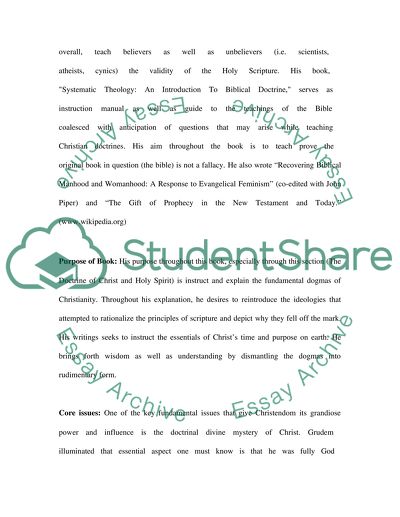Cite this document
(The Doctrine of Christ and Holy Spirit Book Report/Review Example | Topics and Well Written Essays - 1750 words, n.d.)
The Doctrine of Christ and Holy Spirit Book Report/Review Example | Topics and Well Written Essays - 1750 words. https://studentshare.org/religion-and-theology/1532067-the-doctrine-of-christ-and-holy-spirit
The Doctrine of Christ and Holy Spirit Book Report/Review Example | Topics and Well Written Essays - 1750 words. https://studentshare.org/religion-and-theology/1532067-the-doctrine-of-christ-and-holy-spirit
(The Doctrine of Christ and Holy Spirit Book Report/Review Example | Topics and Well Written Essays - 1750 Words)
The Doctrine of Christ and Holy Spirit Book Report/Review Example | Topics and Well Written Essays - 1750 Words. https://studentshare.org/religion-and-theology/1532067-the-doctrine-of-christ-and-holy-spirit.
The Doctrine of Christ and Holy Spirit Book Report/Review Example | Topics and Well Written Essays - 1750 Words. https://studentshare.org/religion-and-theology/1532067-the-doctrine-of-christ-and-holy-spirit.
“The Doctrine of Christ and Holy Spirit Book Report/Review Example | Topics and Well Written Essays - 1750 Words”. https://studentshare.org/religion-and-theology/1532067-the-doctrine-of-christ-and-holy-spirit.


